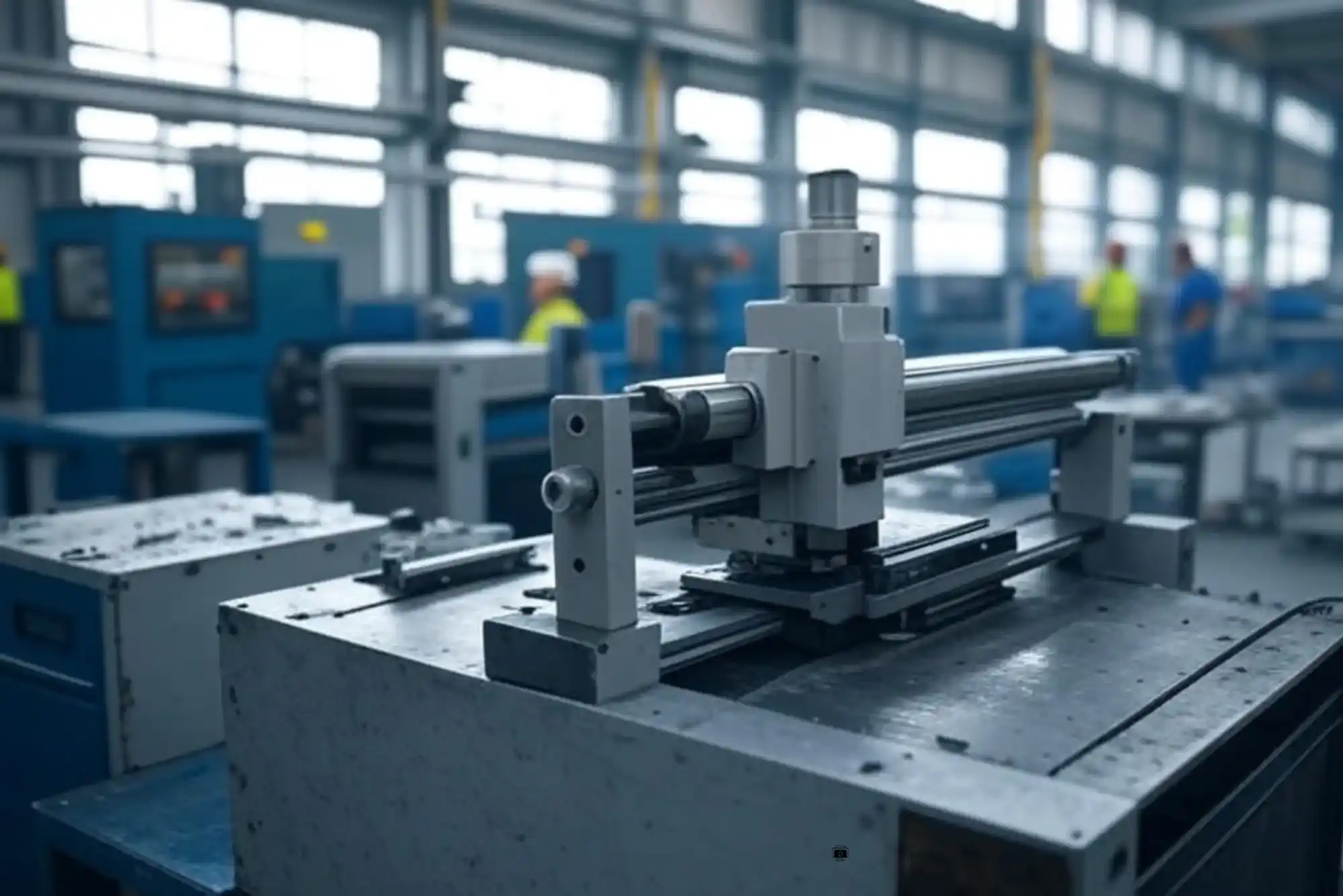When we think about the products we use daily—cars, electronics, household appliances, medical devices—one hidden hero often goes unnoticed: the suppliers behind the injection-molded parts that make these products possible. While we often celebrate innovation in design or functionality, the actual process of creating high-quality, reliable components is just as important. This is where injection molding parts suppliers step in, and their importance to modern industries cannot be overstated.
In this article, I’ll take you through why these suppliers are essential, how plastic parts manufacturers connect innovation with production, and why companies across the globe depend on them to keep industries running smoothly.
The Backbone of Modern Manufacturing
Injection molding is one of the most widely used processes for producing plastic components. It’s fast, scalable, and capable of producing incredibly detailed parts with precision. Imagine a single mold producing thousands of identical components in a matter of hours—that efficiency is what makes injection molding so powerful.
But efficiency doesn’t come automatically. It requires skilled suppliers who can design, test, and deliver molds and parts that meet strict quality standards. Industries ranging from automotive to healthcare rely on these suppliers not just for mass production but also for ensuring consistency and durability. Without injection molding parts suppliers, manufacturing as we know it would slow down dramatically, leading to bottlenecks and higher costs.
Why Suppliers Matter Beyond Manufacturing
A common misconception is that suppliers simply provide parts. In reality, they provide solutions. An automotive company, for instance, may need lightweight but durable plastic components for engine systems. A medical equipment manufacturer may require biocompatible materials for devices that come into contact with patients. In both cases, suppliers bring more than just plastic—they bring expertise, customization, and innovation.
This partnership-driven role means suppliers are not just vendors but collaborators in product development. They help companies select the right materials, optimize design for manufacturability, and even suggest cost-saving alternatives without sacrificing quality. In today’s competitive industrial landscape, this guidance can make the difference between a product that succeeds and one that fails.
The Link Between Plastic Parts Manufacturers and Industry Growth
When we talk about plastic parts manufacturers, we’re referring to the specialists who convert raw plastic materials into usable, functional components. These manufacturers often overlap with injection molding parts suppliers, but their role can sometimes be broader. They might use different production methods depending on the complexity of the part, the material requirements, and the scale of production.
For example, a consumer electronics company may turn to plastic parts manufacturers to produce casings that need to be sleek, lightweight, and durable. The manufacturer’s ability to combine design precision with material science expertise directly affects the final product’s marketability. When industries have access to reliable manufacturers, they can scale their operations faster, reduce production delays, and bring new products to market quickly.
Ensuring Consistency and Quality
One of the greatest strengths of injection molding is its repeatability. Once a mold is created, it can produce identical parts at high volumes with minimal variation. This consistency is crucial for industries like automotive and aerospace, where even the smallest defect can cause significant problems.
Injection molding parts suppliers play a vital role in maintaining this consistency. They invest in advanced machinery, conduct regular quality inspections, and adhere to international standards such as ISO certifications. Their commitment to quality ensures that industries can trust the parts they receive, which in turn safeguards end users. Imagine if a medical syringe or an airplane component failed due to a poorly manufactured part—the consequences could be disastrous. Suppliers help prevent such risks through rigorous quality control.
Driving Innovation in Material Science
Industries today are pushing the boundaries of what plastics can do. From eco-friendly bioplastics to high-performance polymers that can withstand extreme temperatures, material science is evolving rapidly. Suppliers and manufacturers are at the forefront of this shift.
By experimenting with new materials and developing advanced molding techniques, they enable industries to explore possibilities that were once unimaginable. Think about the lightweight plastics in modern electric vehicles, which improve efficiency without compromising safety. Or consider the durable, heat-resistant components used in medical devices that undergo sterilization. These advancements are only possible because suppliers continuously innovate in materials and processes.
Cost-Effectiveness and Scalability
Industrial production often comes down to a simple equation: how to produce the best possible product at the lowest feasible cost. Injection molding, when handled by skilled suppliers, strikes that balance beautifully. Once the mold is designed and set up, the cost per unit drops significantly, making it one of the most economical methods for large-scale production.
Suppliers help industries achieve this scalability by offering not just parts, but also logistical support, timely delivery, and inventory management solutions. This holistic approach reduces downtime, ensures smoother supply chains, and ultimately helps industries remain competitive.
Real-World Impact Across Sectors
To understand the true importance of injection molding parts suppliers, it helps to look at some real-world examples:
Automotive: Vehicles today use hundreds of injection-molded parts, from dashboards to engine components. Suppliers ensure these parts meet safety, durability, and performance standards.
Medical Devices: Products like syringes, implants, and surgical instruments require precision and sterilizable materials. Suppliers deliver parts that meet strict healthcare regulations.
Consumer Electronics: Smartphones, laptops, and gaming devices depend on sleek, durable plastic casings and internal components made through injection molding.
Packaging: Everything from food containers to cosmetic bottles is designed with functionality and branding in mind, and injection molding makes that possible at scale.
Each of these sectors demonstrates how industries would struggle to function without the expertise and reliability of injection molding parts suppliers.
Building Long-Term Industrial Partnerships
Another reason these suppliers are so important is the long-term relationships they build with industries. A supplier who understands a company’s production requirements, design philosophy, and market goals becomes a trusted partner rather than just a vendor. This kind of partnership allows for smoother product development cycles, reduced time to market, and a higher degree of innovation.
Industries benefit immensely from this collaboration because it creates a synergy between design, engineering, and production. Instead of working in silos, companies and suppliers work hand-in-hand to create products that are not only functional but also market-leading.
The Future of Injection Molding and Industry Needs
Looking ahead, the role of injection molding parts suppliers is only set to grow. With sustainability becoming a top priority, industries are demanding eco-friendly plastics, recyclable materials, and processes that minimize waste. Suppliers are adapting by investing in green technologies, energy-efficient machinery, and biodegradable materials.
Additionally, the rise of automation and digital manufacturing is reshaping the field. Advanced injection molding machines now come equipped with sensors, real-time monitoring, and AI-driven optimization, enabling suppliers to offer even higher precision and efficiency. For industries, this means faster turnaround times, fewer defects, and more cost savings.
Final Thoughts
Injection molding may not always make headlines, but it quietly powers industries across the globe. From the smallest medical device component to the largest automotive part, these suppliers ensure that products meet expectations for quality, safety, and innovation.
The collaboration between plastic parts manufacturers and injection molding parts suppliers is what keeps industries agile, competitive, and ready to meet the demands of a constantly evolving market. Without their expertise, many of the products we rely on daily simply wouldn’t exist.
For industries looking to stay ahead, partnering with reliable suppliers isn’t just a choice—it’s a necessity. They are the bridge between design ideas and market-ready products, and their importance will only continue to grow in the future.












